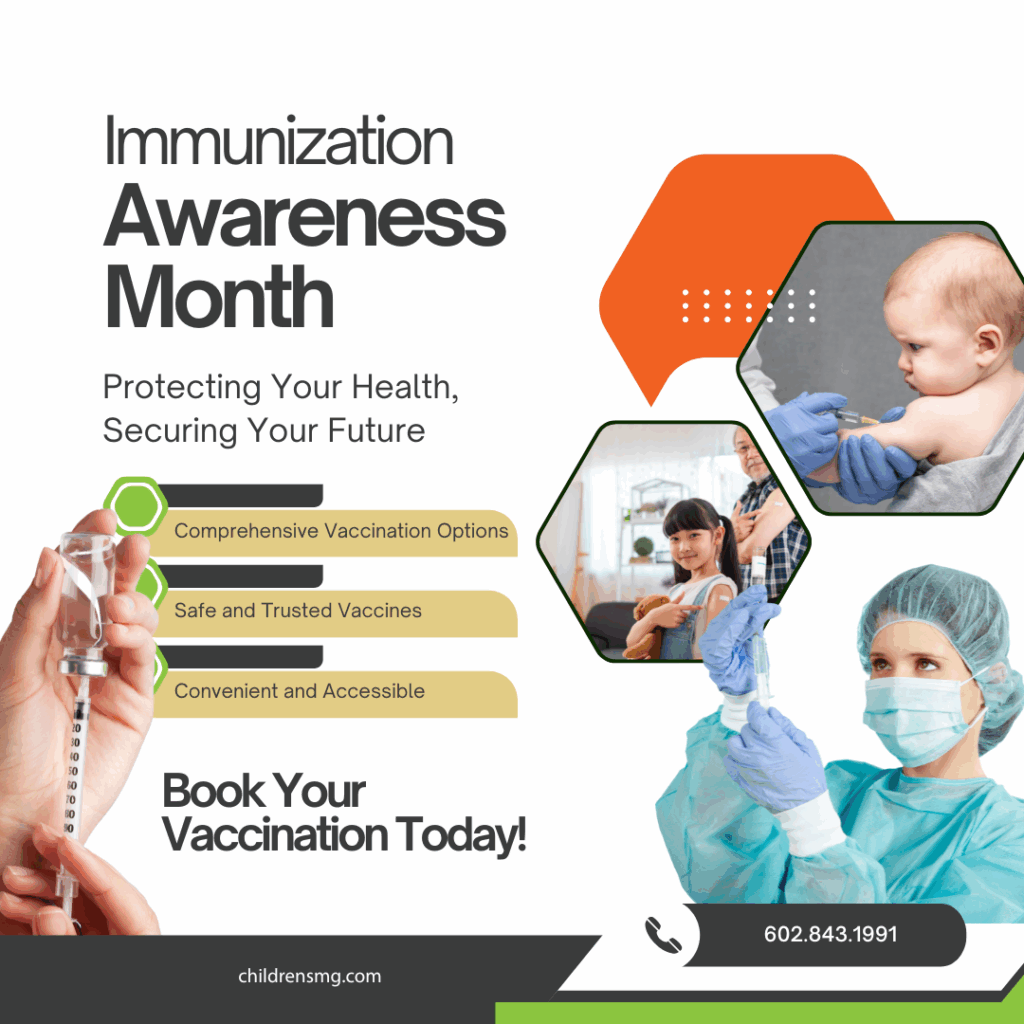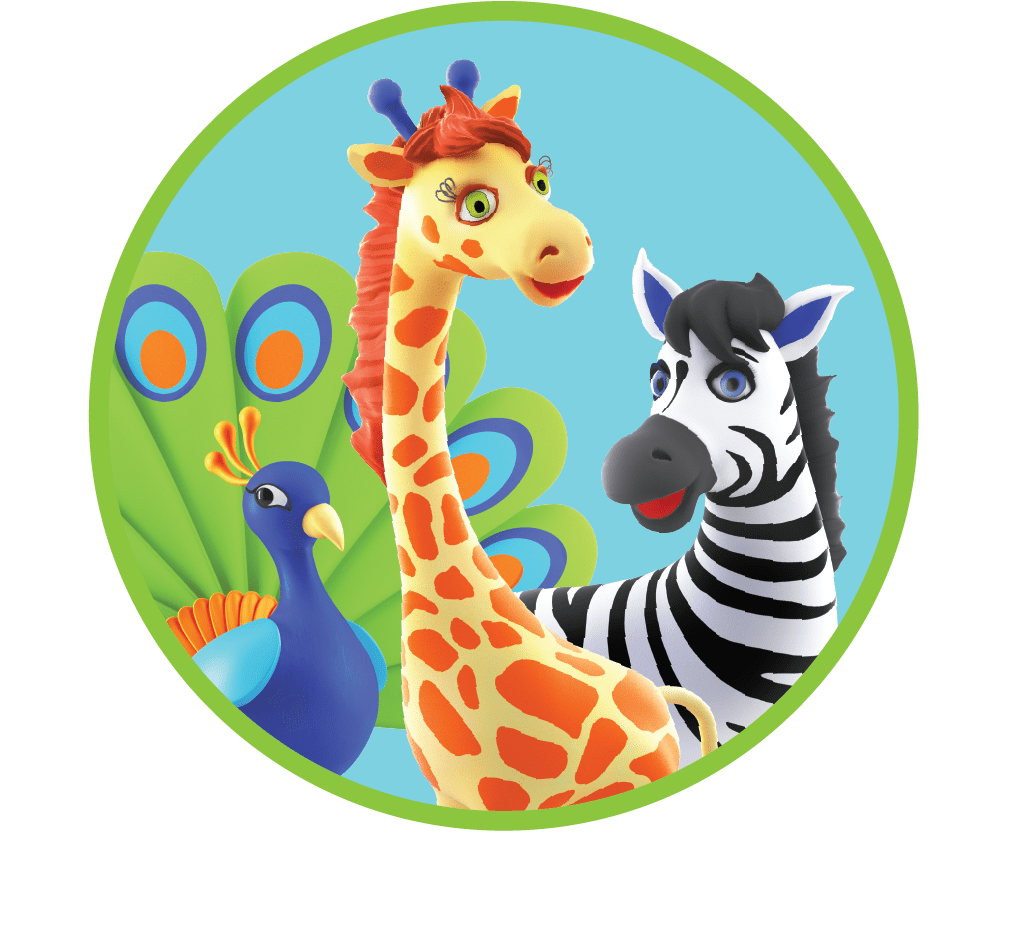Immunization Awareness Month: Safeguarding Children’s Health Across All Ages
Each year, Immunization Awareness Month offers a vital opportunity to reflect on the crucial role vaccines play in protecting children’s health from infancy through adolescence. This observance is dedicated to educating caregivers, healthcare providers, and communities about the importance of timely vaccinations. By reinforcing understanding of how immunizations prevent the spread of infectious diseases, it fosters informed decisions that safeguard young lives. The month-long focus also highlights advancements in vaccine development and addresses common misconceptions, ensuring that children receive the full benefits of immunization schedules. Ultimately, Immunization Awareness Month serves as a proactive reminder that protecting children’s health is a continuous responsibility, integral to nurturing resilient, thriving communities across all ages.

Understanding Immunizations: A Comprehensive Overview
Understanding immunizations involves recognizing them as a fundamental component of public health designed to protect individuals, especially children, from preventable diseases. The process begins with vaccines, which contain weakened or inactive parts of a particular organism (antigen) that trigger the body’s immune system to recognize it as a threat, destroy it, and remember it for future defense. When a child receives a vaccine, their immune system is prompted to produce antibodies without causing the disease itself. This immunological memory enables the body to respond swiftly and effectively if exposed to the actual infection later. Immunizations are typically administered according to a carefully developed schedule that considers the optimal timing for maximum efficacy and safety. This schedule varies depending on the child’s age, health status, and local disease prevalence. Key steps in the immunization process include:
- Introduction of the vaccine antigen to stimulate immune response
- Activation of immune cells to produce antibodies
- Formation of memory cells for long-term protection
- Adherence to recommended vaccination schedules
- Monitoring and managing any side effects or reactions
By understanding these steps, caregivers and healthcare providers can appreciate the science behind immunizations and their role in building community immunity, thereby reducing the incidence of infectious diseases among children and the wider population.
Addressing Parental Concerns with Compassion and Evidence
Addressing parental concerns about immunizations requires more than presenting facts; it demands stepping out of our comfort zones to engage with empathy and understanding. Many parents have fears rooted in misinformation or personal experiences, making it essential for healthcare providers and advocates to listen attentively and validate these feelings. Challenging ourselves means moving beyond rigid scientific explanations and embracing compassionate dialogue that respects individual perspectives. By fostering open conversations that gently dispel myths with evidence, we build trust and empower parents to make informed choices for their children’s health. This approach not only alleviates anxiety but also bridges gaps created by skepticism, ultimately strengthening community-wide immunity. Embracing this challenge during Immunization Awareness Month encourages all stakeholders to rethink communication strategies, ensuring that support is personalized and accessible. It is a call to prioritize kindness alongside knowledge, recognizing that safeguarding children’s health is as much about connection as it is about science. Stepping into this discomfort paves the way for more meaningful engagement and lasting protection for children at every stage of development.
Immunization Schedules for Young and Older Children: What Parents Should Know
Understanding immunization schedules is essential for parents to ensure their children are protected against various preventable diseases throughout childhood. These schedules outline the recommended timing and types of vaccines for children at different ages, tailored to provide the best possible defense as their immune systems develop. For young children, immunizations typically begin shortly after birth and continue through early childhood, targeting diseases such as measles, mumps, rubella, polio, and whooping cough. As children grow older, certain vaccines are repeated or introduced to maintain immunity and protect against additional illnesses like human papillomavirus (HPV) and meningococcal disease. It is important for parents to keep track of their child’s vaccination appointments and consult healthcare providers for any updates or catch-up vaccinations if some doses are missed. Schools and childcare centres often require proof of immunization to prevent outbreaks within communities. By following the recommended immunization schedules, parents not only protect their own children but also contribute to wider public health by reducing the spread of infectious diseases. To summarise, parents should:
1. Familiarize themselves with the immunization schedule recommended by health authorities.
2. Ensure timely vaccination appointments from infancy through adolescence.
3. Consult healthcare professionals for guidance and updates.
4. Keep accurate records of all immunizations received.
5. Understand the importance of vaccines in community health and disease prevention.
The Role of Children’s Medical Group in Facilitating Immunization Appointments
Children’s Medical Group plays a pivotal role in facilitating immunization appointments, significantly enhancing community health outcomes. By offering accessible scheduling options and comprehensive support, they ensure that immunization services are within reach for families from diverse backgrounds. Their proactive reminder systems and educational resources empower parents to stay informed about vaccination timelines, reducing missed appointments and improving overall immunization rates. Moreover, their collaboration with local schools and community centers fosters widespread awareness, making vaccine clinics more approachable and convenient. This concerted effort not only protects individual children but also strengthens herd immunity, curbing the spread of infectious diseases within the community.
Bridging Access and Awareness
Children’s Medical Group bridges the gap between healthcare services and families by providing clear communication and culturally sensitive care. Their commitment to inclusivity helps overcome barriers such as language differences and transportation challenges, ensuring equitable access to vital vaccinations.
Empowering Families Through Education
By equipping caregivers with accurate information, Children’s Medical Group promotes informed decision-making, fostering trust in vaccine safety and efficacy. This educational approach cultivates a community that values preventive healthcare, ultimately contributing to healthier generations.
Reliable Resources and Referral Information for Further Guidance
When seeking further guidance on immunization, it is essential to consult reliable and authoritative sources to ensure accurate and up-to-date information. Trusted organisations such as the NHS, the World Health Organization (WHO), and the Centers for Disease Control and Prevention (CDC) offer comprehensive resources on vaccine schedules, safety, and benefits. Healthcare providers, including family doctors and paediatricians, are invaluable contacts for personalised advice tailored to your child’s health needs. Additionally, local public health departments often provide clinics and educational materials to support immunisation efforts within communities. For those looking for credible online information, websites ending in “.gov” or “.org” typically maintain rigorous standards for content accuracy. When in doubt, it is advisable to cross-reference multiple reputable sources and avoid misinformation prevalent on less regulated platforms. By utilising these dependable resources and consulting qualified health professionals, caregivers can make informed decisions that contribute to the ongoing protection of children’s health across all ages.
In conclusion, immunizations are indispensable in safeguarding children’s health throughout their development, providing protection against a wide range of preventable diseases. The commitment to timely vaccinations not only shields individual children but also contributes significantly to community-wide immunity, reducing the prevalence and impact of infectious illnesses. Awareness initiatives, such as Immunization Awareness Month, play a crucial role in educating caregivers and healthcare providers, dispelling myths, and encouraging informed decisions. By embracing compassionate communication and utilising reliable resources, families can confidently navigate vaccination schedules, ensuring their children receive the full benefits of immunisation. Ultimately, prioritising vaccines is a vital responsibility that fosters healthier generations and stronger communities, emphasising the collective effort required to maintain and enhance child health across all ages.

